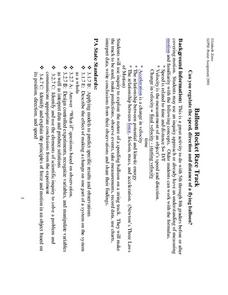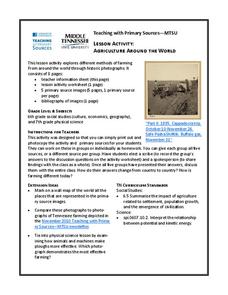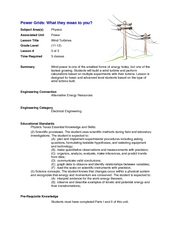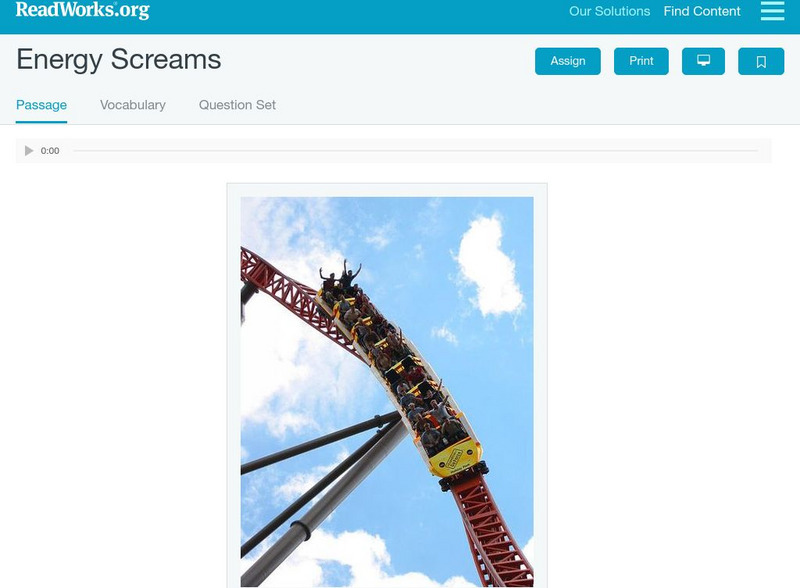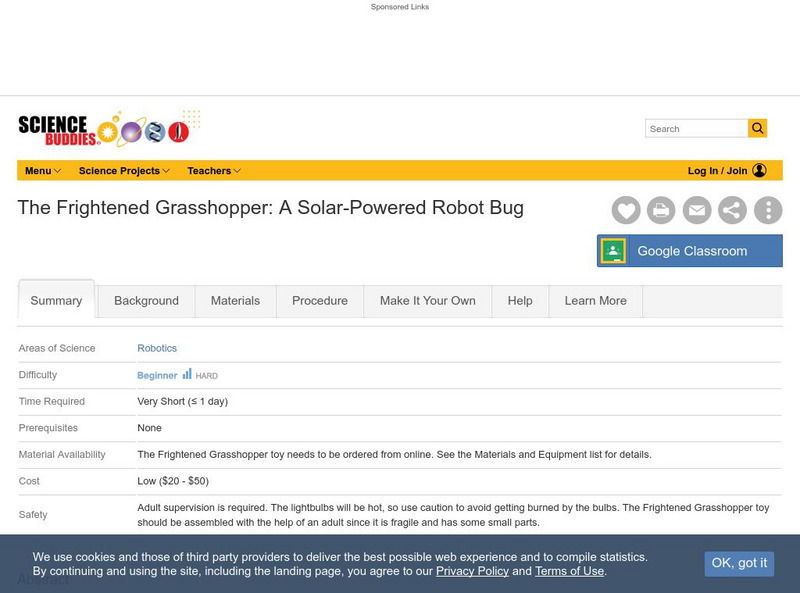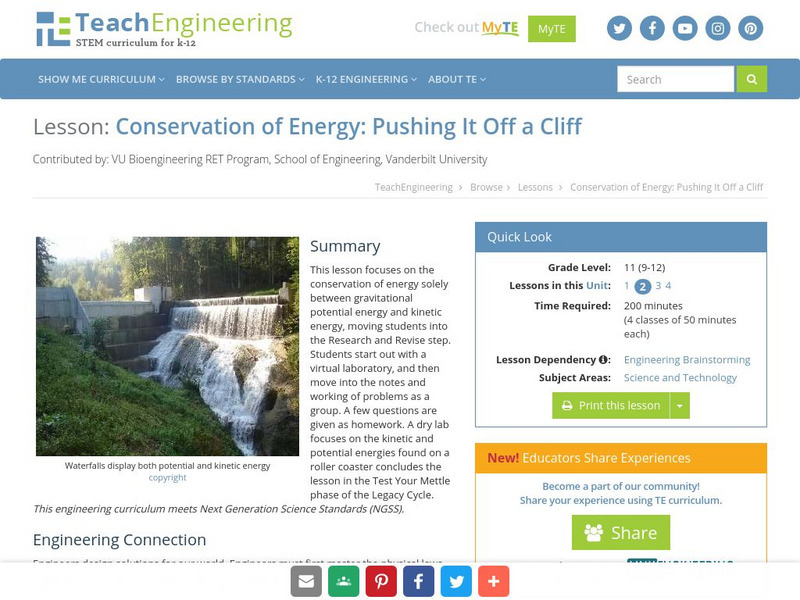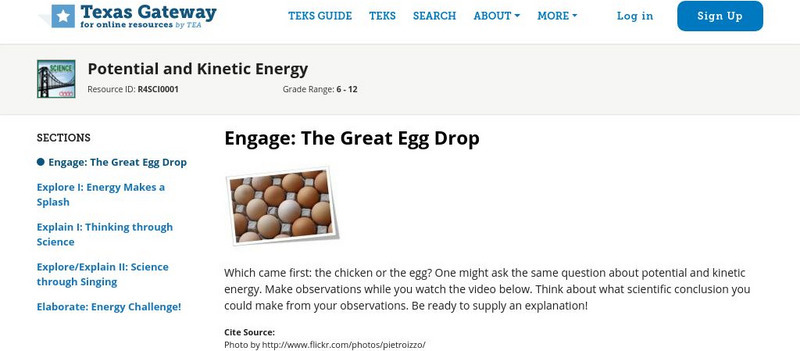Curated OER
Design a Bobsled
Learners apply their knowledge of friction, drag, mass and gravity as they design, build, and test mini-bobsleds.
Curated OER
Types of Reactions
In this reactions worksheet, students complete the given reactions by writing the products. Students do examples of composition, decomposition, single replacement, double replacement, and combustion reactions. This worksheet has 54...
DiscoverE
An Egg-Citing Ride
Wheeeee! Young thrill seekers build a bungee jump—not for themselves, though, but for an egg. The egg must fall from a height of five feet and rebound within two inches of the ground or floor.
Curated OER
Science and Measurement
A great start to activate thinking about the scientific method, instruments, measurements, accuracy, constants and laws. Each slide describes important procedures and examples essential for the study of science.
Flipping Physics
AP Physics 1: Rotational Dynamics Review
Prepare your class members for the rotational dynamics section of the AP Physics exam with a fast-paced video that reviews all the key concepts and principles. Tips and tricks for the exam and common misconceptions are also addressed.
Curated OER
Discovering How a Car Works
Students explain the four stroke process in internal combustion engines. In this physics lesson, students role play this process and present their reenactment in class. They draw and label the diagram of an internal combustion engine.
Curated OER
What is a Gas?
Students develop a scientific model of gas behavior. In this gas lesson plan, students observe different balloons filled with different densities of gases. They complete an activity where they model the behavior of gases using marbles, a...
Curated OER
Roller Coaster Physics
Young scholars design a roller coaster that allows a marble to run the course as fast as possible. Students create an experimental roller coaster taking into account the steepness of the hills and the sharpness of the turns. Young...
Curated OER
Balloon Rocket Race Track
Students discuss "How can we measure (or make it easier to record) the speed, distance or acceleration of the balloon?" They told that they are going to make a balloon racetrack. Pupils use meter sticks to accurately measure length and...
Curated OER
Agriculture Around the World
Students explore various kinds of farming methods around the world. In this history lesson, students view pictures of farming methods, then compare and contrast them in a class discussion with the methods of farming that are used today.
Curated OER
The Rifting of Pangaea and the Gettysburg Battlefield
Eleventh graders analyze and interpret an animated model of Earth’s rifting processes. In this Earth Science lesson, 11th graders connect Earth’s rifting processes with the Earth’s surface in the Gettysburg battlefield. Students apply...
Curated OER
Boyle's Law
Students experiment on Boyle's law using balloons and other common materials. In this chemistry instructional activity, students explain the relationship between pressure and volume. They solve problems relating to Boyle's Law.
Curated OER
Build Your Own Car
Students design and build their own cars. For this physics lesson, students test their car's speed and make changes when necessary. They graph data and analyze results.
Curated OER
When Push Comes to Crunch
Eighth graders engage in an experiment which uses an inclined plane and balls of various masses to determine the effect a large object has on a small object. They study velocity, momentum, gravity and forces.
Curated OER
Angular Momentum
In this momentum activity, students use linear momentum to determine velocity and angular momentum to determine angular velocity. This activity has 1 problem to solve.
Curated OER
Wind Turbines
Students build their own wind turbine. In this physics lesson, students calculate the power output of their wind turbines. They evaluate their design and make the necessary modifications.
Read Works
Read Works: Energy Screams
[Free Registration/Login Required] An informational text about potential and kinetic energy on a roller coaster.. A question sheet is available to help students build skills in reading comprehension.
Concord Consortium
Concord Consortium: Stem Resources: Atoms and Energy
Online activity walks learner through exploration of kinetic and potential energy using animations. Through graphs, a quantitative connection is made between the movement and the energy involved. This information is then related to the...
Massachusetts Institute of Technology
Mit: Open Course Ware: Force and Potential Energy
The activity investigates conservation of energy. Some topics explored are friction, kinetic energy, conservation of energy, and potential energy. The resource consists of video clips, lecture notes, practice problems, and exam...
Science Buddies
Science Buddies: Project Ideas: Electronics and Solar Energy With a Robot Bug
In this science fair project, use the "frightened grasshopper" solar-powered toy to explore how solar energy is converted into kinetic energy. The Science Buddies project ideas are set up consistently beginning with an abstract,...
Texas Education Agency
Texas Gateway: Rotational Motion and Angular Momentum: Conceptual Questions
This page provides 30 questions that cover the major concepts presented in Chapter 10: Rotational Motion and Angular Momentum from the AP Physics online text.
TeachEngineering
Teach Engineering: Pushing It Off a Cliff
Lesson 2 moves into the Research and Revise step and focuses on the conservation of energy solely between gravitational potential energy and kinetic energy. Students start out with a virtual laboratory, and then move into the notes and...
TeachEngineering
Teach Engineering: It's Tiggerific!
In Lesson 3, as part of the Research and Revise step, students investigate potential energy held within springs (elastic potential energy). Class begins with a video of either spring shoes or bungee jumping. Students then move on into...
Texas Education Agency
Texas Gateway: The Great Egg Drop!
Which came first: the chicken or the egg? One might ask the same question about potential and kinetic energy. Make observations while you watch the video below. Think about what scientific conclusion you could make from your...










